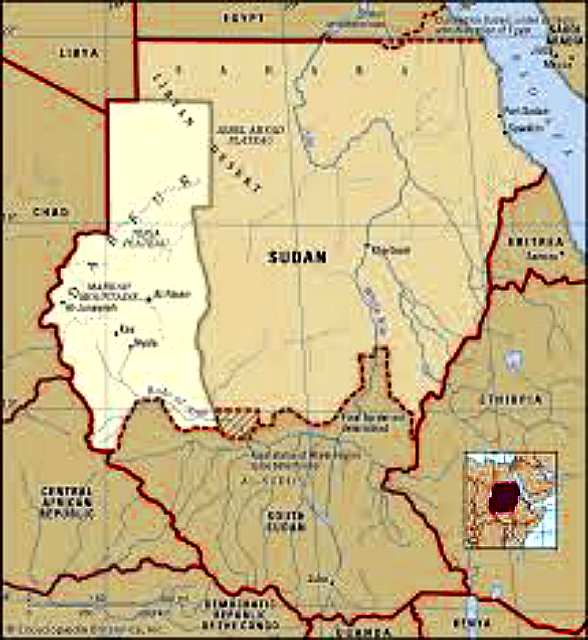Violence at the Darfur-Chad Border: A Historical Context and Call for Action
The DFR: History, Ethnicity, and Beliefs
The RSF, officially formed in 2013, is a predominantly Arab militia group with roots in the Janjaweed militias that emerged during the Darfur conflict in the early 2000s. The Janjaweed were accused of widespread atrocities against civilians, particularly non-Arab ethnic groups in Darfur. The RSF, while formally integrated into the Sudanese Armed Forces, has retained its semi-autonomous structure and close ties to the Sudanese government.
Targeted Tribes and Their Identity
The RSF's actions disproportionately affect non-Arab ethnic groups, particularly the Fur, Masalit, and Zaghawa. These groups have distinct ethnic identities, cultural traditions, and languages, often differing from the Arab majority in Sudan.
Historical and Present-Day Conflicts
The violence between the RSF and non-Arab ethnic groups is rooted in a complex interplay of historical grievances, political marginalization, and competition for resources. Historically, non-Arab groups in Darfur and Chad have faced discrimination and political exclusion, leading to resentment and a desire for greater autonomy.
Reasons for the Ongoing Conflict
The current conflict is exacerbated by the Sudanese government's support for the RSF, which has been accused of human rights abuses and war crimes. The RSF's presence in the Darfur-Chad border region has further destabilized the area, leading to clashes with local communities and fueling inter-ethnic tensions.
Impact of the Violence
The violence has had a devastating impact on the region, causing widespread displacement, loss of life, and destruction of property. The humanitarian crisis has exacerbated existing vulnerabilities and created a climate of fear and insecurity.
Call for Immediate Action
The international community must take immediate action to address the violence in the Darfur-Chad border region. This includes:
Condemnation of the violence and human rights abuses: The international community must send a clear and unequivocal message that the violence and human rights abuses against non-Arab ethnic groups are unacceptable.
Demands for accountability: The Sudanese government must be held accountable for its role in supporting the RSF and enabling its actions against civilian populations.
Support for peace processes: The international community must support ongoing efforts to broker peace between the Sudanese government and non-Arab armed groups.
Humanitarian assistance: The international community must provide humanitarian assistance to the affected populations, including food, shelter, and medical care.
Long-Term Solutions
Addressing the root causes of the conflict requires a comprehensive approach that includes:
Addressing historical grievances: The Sudanese government must address historical grievances and promote reconciliation between different ethnic groups.
Promoting inclusive political participation: Non-Arab groups must be given meaningful representation in the political process to address their grievances and aspirations.
Addressing economic marginalization: Economic opportunities must be created for all groups, particularly in marginalized regions, to reduce poverty and promote social cohesion.
The violence in the Darfur-Chad border region is a stark reminder of the deep-seated tensions and unresolved conflicts that continue to plague the region. The international community must play a proactive role in promoting peace, justice, and sustainable development to bring an end to this cycle of violence and ensure the well-being of all communities.
Unlikely Buddha 2023






Comments
Post a Comment